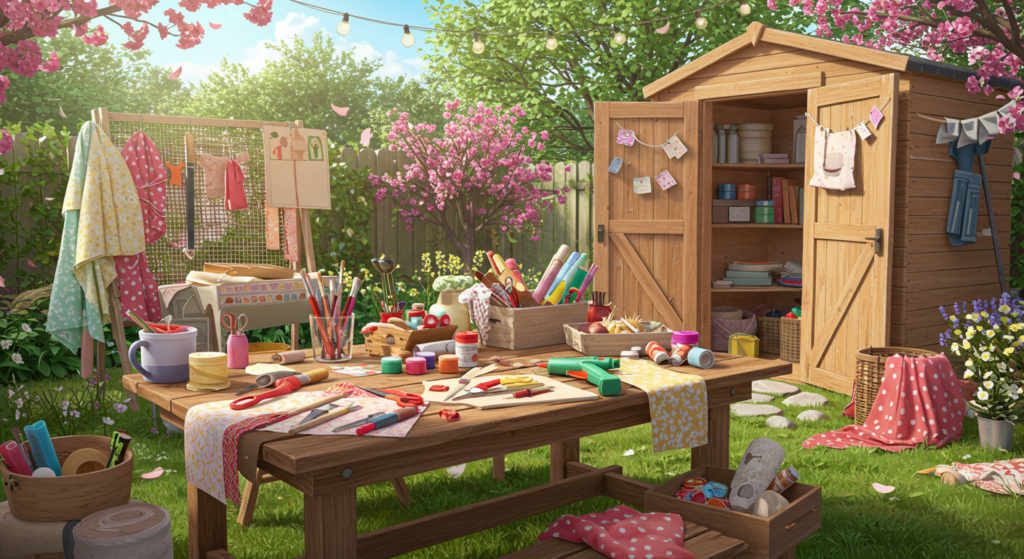Picture this: Your preschooler eagerly pulls out their crayons and sits at the table, their eyes alight with curiosity and excitement. As they dive into their activity, their world expands, inch by inch, with every letter traced and every colorful page filled. Moments like these are priceless, and they remind you of the joy and importance of early childhood learning. Whether you’re a parent, teacher, or caregiver, the right preschool activities and printables can turn every day into a magical learning adventure.
Let’s explore a treasure trove of ideas and resources to help you engage your preschooler in fun, educational activities that nurture their growing minds and hearts.
1- Why Preschool Activities Matter
Building a Strong Foundation
Preschool activities do more than just fill time; they lay the groundwork for lifelong learning. At this age, your child’s brain is like a sponge, ready to absorb new concepts and ideas. Engaging in purposeful activities enhances their cognitive, social, and emotional development.
- Cognitive Growth: Activities such as puzzles and matching games improve problem-solving skills.
- Emotional Skills: Group activities teach patience, sharing, and empathy.
- Motor Skills: Fine motor skills develop through activities like cutting paper, coloring, or threading beads.
When you provide these opportunities, you’re setting your preschooler up for success, giving them tools to navigate school and beyond.

2- Creative Preschool Activities for Every Occasion
Keeping your preschooler engaged doesn’t have to be a challenge. With a little creativity, you can make every day special. Here are some ideas tailored to different interests and occasions:
Art and Craft Activities
Art and craft projects spark creativity and encourage self-expression. Try these ideas:
- Painting Fun: Use sponges, fingers, or brushes to create colorful masterpieces. Seasonal themes like fall leaves or spring flowers add extra excitement.
- DIY Crafts: Make paper snowflakes, holiday ornaments, or simple animal masks using household supplies.
Outdoor and Sensory Play
Get your preschooler moving and exploring with outdoor and sensory activities:
- Nature Scavenger Hunt: Create a list of items to find, such as a feather, a rock, or a yellow leaf. Let your child explore and collect treasures.
- Sand and Water Play: Fill a container with sand or water and add toys or tools for hands-on fun.
Imaginative Play and Storytime
Imaginative play fosters creativity and storytelling skills:
- Dress-Up Games: Provide costumes or props for your preschooler to act out their favorite characters.
- Interactive Storytelling: Read a book and let your child use puppets or toys to bring the story to life.
3- Printable Worksheets and Resources for Preschoolers
Printables are a fantastic way to blend fun and learning. They’re easy to access, often free, and cover a range of skills.
Alphabet and Numbers
- Tracing Worksheets: Help your preschooler practice writing letters and numbers.
- Matching Games: Print and cut out cards to match uppercase and lowercase letters.
Coloring Pages
Coloring pages with themes like animals, seasons, or holidays let your child explore their creativity while improving fine motor skills.
Educational Games
- Board Games: Printable board games with simple counting or matching rules.
- Phonics Flashcards: Use these to teach letter sounds and early reading skills.
4- Easy Preschool Recipes to Try
Snack time can be just as fun and educational as playtime. Here are a couple of simple, interactive recipes you can try with your preschooler:
Snack Table
| Recipe | Ingredients | Steps |
|---|---|---|
| Mini Fruit Pizza | Crust: Graham crackers | Spread yogurt, add fruit slices. |
| Veggie Sticks Dip | Dip: Yogurt, honey, mustard | Mix ingredients, serve with veggies. |
Cooking together teaches measuring, following instructions, and healthy eating habits. Plus, it’s a wonderful bonding experience.
5- Tips for Using Printables Effectively
Make the most of your printables with these handy tips:
- Laminate for Longevity: Laminated worksheets can be used repeatedly with dry-erase markers.
- Organize with a Planner: Create a weekly schedule for activities, mixing printables with hands-on learning.
- Pair with Physical Activities: Balance screen time or table work with movement-based activities like dancing or yoga.
6- Frequently Asked Questions about Preschool Activities and Printables
What age group are preschool printables best for?
Preschool printables are typically designed for children aged 3-5 years, but they can be adapted for younger or slightly older kids as needed.
How do preschool activities support learning?
Preschool activities engage young learners in hands-on experiences that enhance fine motor skills, creativity, and foundational academic concepts like counting and letter recognition.
Are there free resources available for preschool activities?
Yes, numerous websites offer free printable worksheets, coloring pages, and activity guides. Some popular sites include education-focused blogs and parenting websites.
How much time should I dedicate to preschool activities each day?
Aim for 30 minutes to 2 hours daily, depending on your child’s attention span and interest. It’s important to balance structured activities with free play.
7- Making Every Moment Count with Preschool Activities
Every day is an opportunity to spark joy and learning in your preschooler’s life. With engaging activities and easy-to-use printables, you can transform ordinary moments into extraordinary ones. So grab some crayons, download a few worksheets, and let the fun and learning begin. Your preschooler will thank you with giggles, smiles, and perhaps a newfound love for learning.
Start today! Share these ideas with friends, create a plan for the week, and watch as your preschooler flourishes. The memories you make together will be cherished for a lifetime.